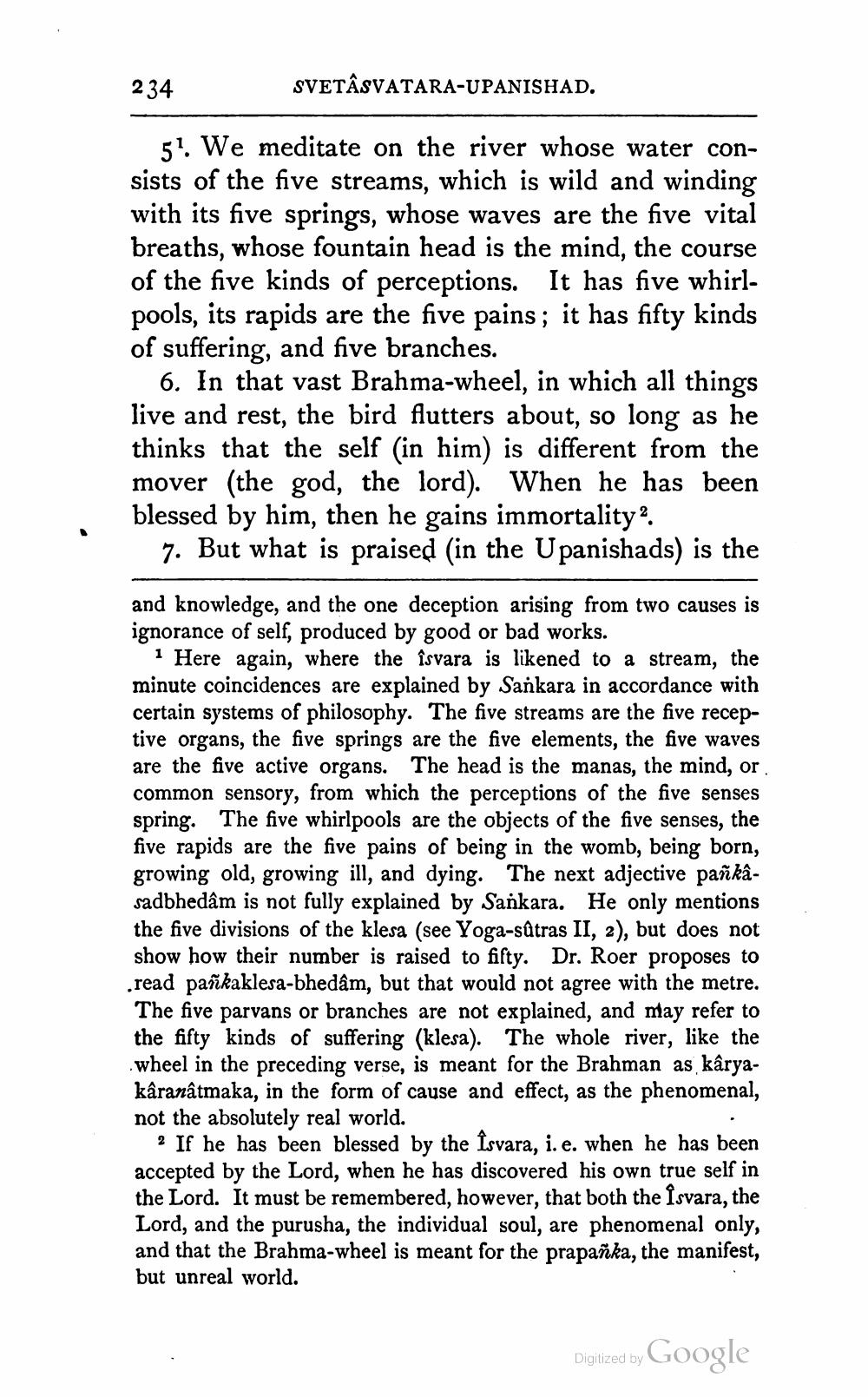________________
234
SVETASVATARA-UPANISHAD.
5? We meditate on the river whose water consists of the five streams, which is wild and winding with its five springs, whose waves are the five vital breaths, whose fountain head is the mind, the course of the five kinds of perceptions. It has five whirlpools, its rapids are the five pains; it has fifty kinds of suffering, and five branches.
6. In that vast Brahma-wheel, in which all things live and rest, the bird flutters about, so long as he thinks that the self (in him) is different from the mover (the god, the lord). When he has been blessed by him, then he gains immortality?
7. But what is praised (in the Upanishads) is the
and knowledge, and the one deception arising from two causes is ignorance of self, produced by good or bad works.
1 Here again, where the îsvara is likened to a stream, the minute coincidences are explained by Sankara in accordance with certain systems of philosophy. The five streams are the five receptive organs, the five springs are the five elements, the five waves are the five active organs. The head is the manas, the mind, or. common sensory, from which the perceptions of the five senses spring. The five whirlpools are the objects of the five senses, the five rapids are the five pains of being in the womb, being born, growing old, growing ill, and dying. The next adjective pañkâsadbhedâm is not fully explained by Sankara. He only mentions the five divisions of the klesa (see Yoga-sûtras II, 2), but does not show how their number is raised to fifty. Dr. Roer proposes to .read pankaklesa-bhedâm, but that would not agree with the metre.
The five parvans or branches are not explained, and may refer to the fifty kinds of suffering (klesa). The whole river, like the wheel in the preceding verse, is meant for the Brahman as karyakâranâtmaka, in the form of cause and effect, as the phenomenal, not the absolutely real world.
? If he has been blessed by the Isvara, i. e. when he has been accepted by the Lord, when he has discovered his own true self in the Lord. It must be remembered, however, that both the Isvara, the Lord, and the purusha, the individual soul, are phenomenal only, and that the Brahma-wheel is meant for the prapanka, the manifest, but unreal world.
Digitized by Google




